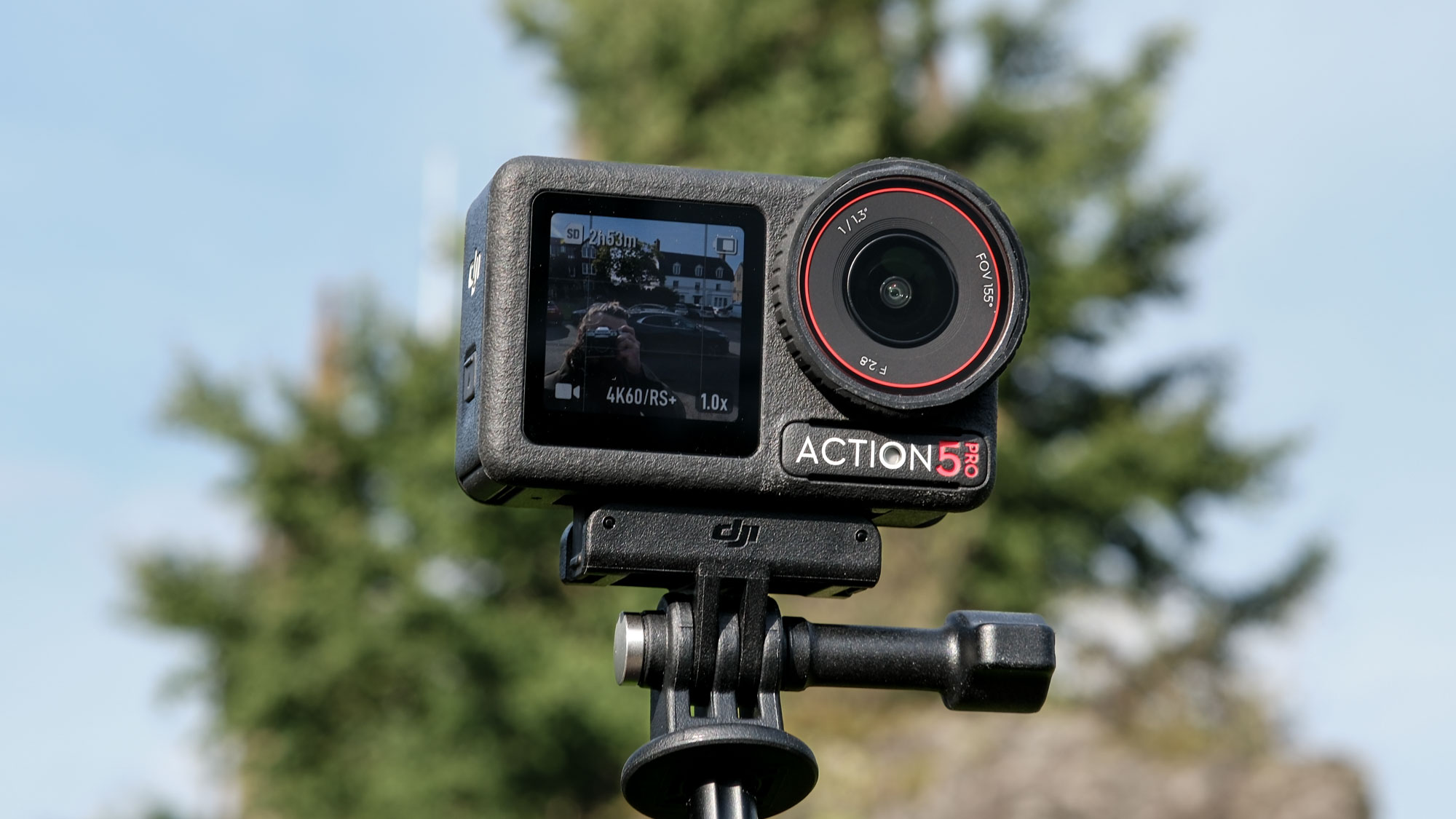
The DJI Osmo Action 5 Pro is the fifth instalment in DJI’s flagship (albeit its only) action camera lineup, competing with range-topping models from Insta360 and GoPro. For a while now, the Osmo Action line has been nipping at GoPro’s heels — never before now, though, have those ankles been harassed quite like this.
The Osmo Action 5 Pro (OA5 Pro) builds on the strengths of its predecessor, the DJI Osmo Action 4 (OA4), with best-in-class waterproofing and internal audio, plus wireless hookup with DJI microphones and pro recording features to satisfy hardcore users. Better yet, DJI has dropped the price, massively undercutting its flagship rivals, the GoPro Hero13 Black and Insta360 Ace Pro 2.
Is this one of the best action cameras around? Yes. Should you buy it? Find out in my full DJI Osmo Action 5 Pro review.
DJI Osmo Action 5 Pro review: Specs
DJI Osmo Action 5 Pro review: Price & availability
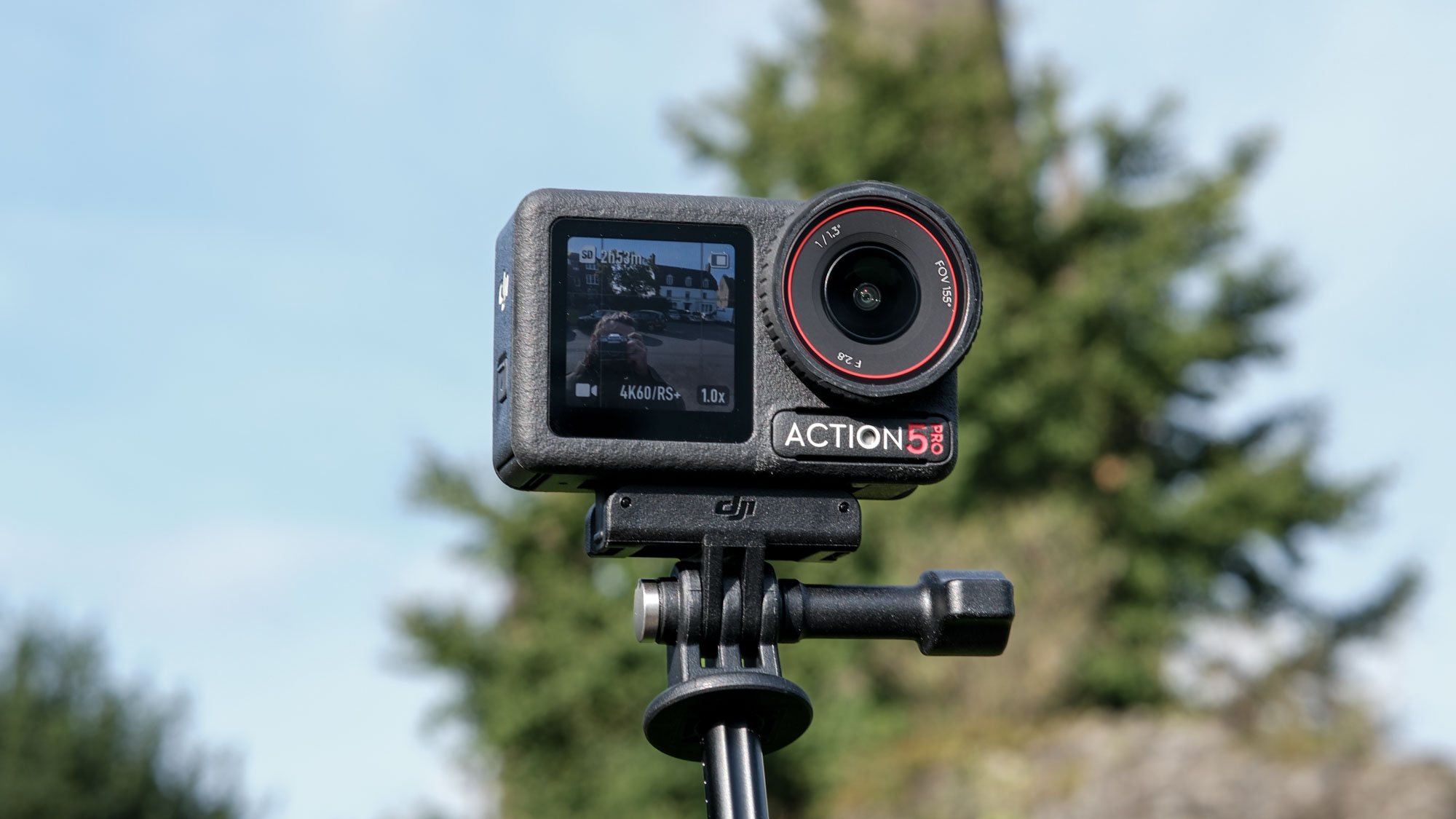
The DJI Osmo Action 5 Pro launched in fall 2024 and starts at $349 / £329, undercutting its main competitor, the GoPro Hero13 Black, by $50. Last generation, the OA4 was priced in line with the Hero12 Black at $399, which didn’t make much sense — as strong as DJI cameras are, they possess neither the headline specs of a Hero Black camera, nor the weight of the GoPro name. Why buy a 4K DJI when you can buy a 5.3K GoPro for the same money? It makes a lot more sense for DJI to have priced the OA5 Pro lower, and kudos to the manufacturer for doing so — it’s a good thing in its own right.
DJI Osmo Action 5 Pro review: Design
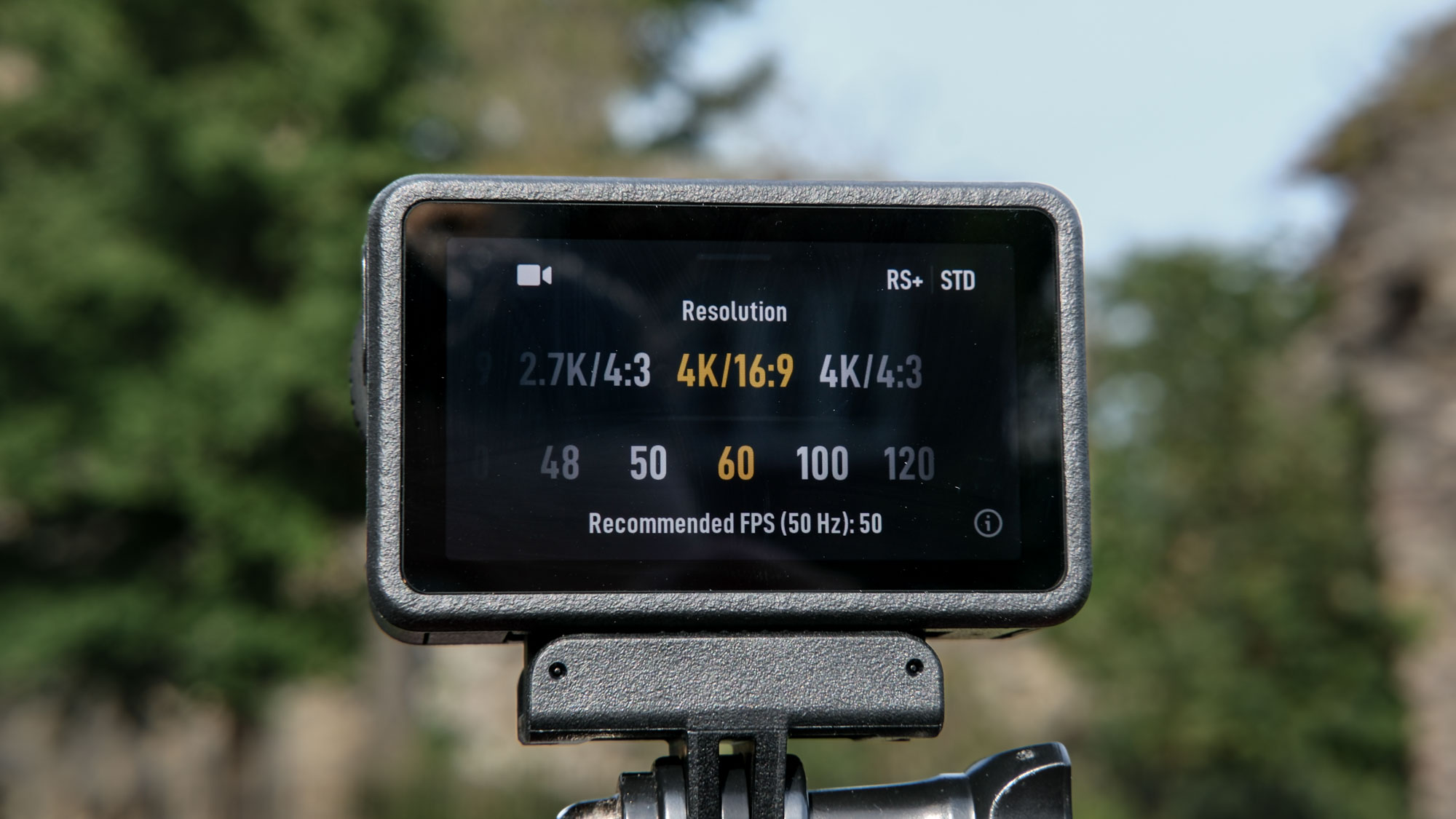
The OA5 Pro is a squat little camera, measuring 2.77 x 1.74 x 1.29 inches. It’s a quarter-inch shorter than the Hero13 Black and Insta360 Ace Pro 2 ($399) and feels much less bulky than those rivals. At 5.15 ounces, the OA5 Pro is the lightest of the three flagships and the best for helmet mounting.
The rear display is a quarter-inch larger than the OA4’s, and now OLED instead of LCD. The front display has also been given the OLED treatment alongside a fractional boost in size. Both screens are gorgeous: crisp, colorful and highly reactive to the touch. I had no issues using the rear display in bright sunlight, even at 80-90% brightness. The rear is an ‘always on display’, showing a low-consumption recording timer that helps prolong battery life while shooting.
The OA5 Pro demonstrates DJI’s usual impeccable build quality: the camera is finished in a rugged but premium-feeling metal, while all buttons and hatches operate with reassuring clicks and thumps. Making a return is the secure magnetic mounting system. I find this system a little more finicky than Insta360’s equivalent, but still much more user-friendly than GoPro’s old-fashioned fork mount, which can be fussy and slow.
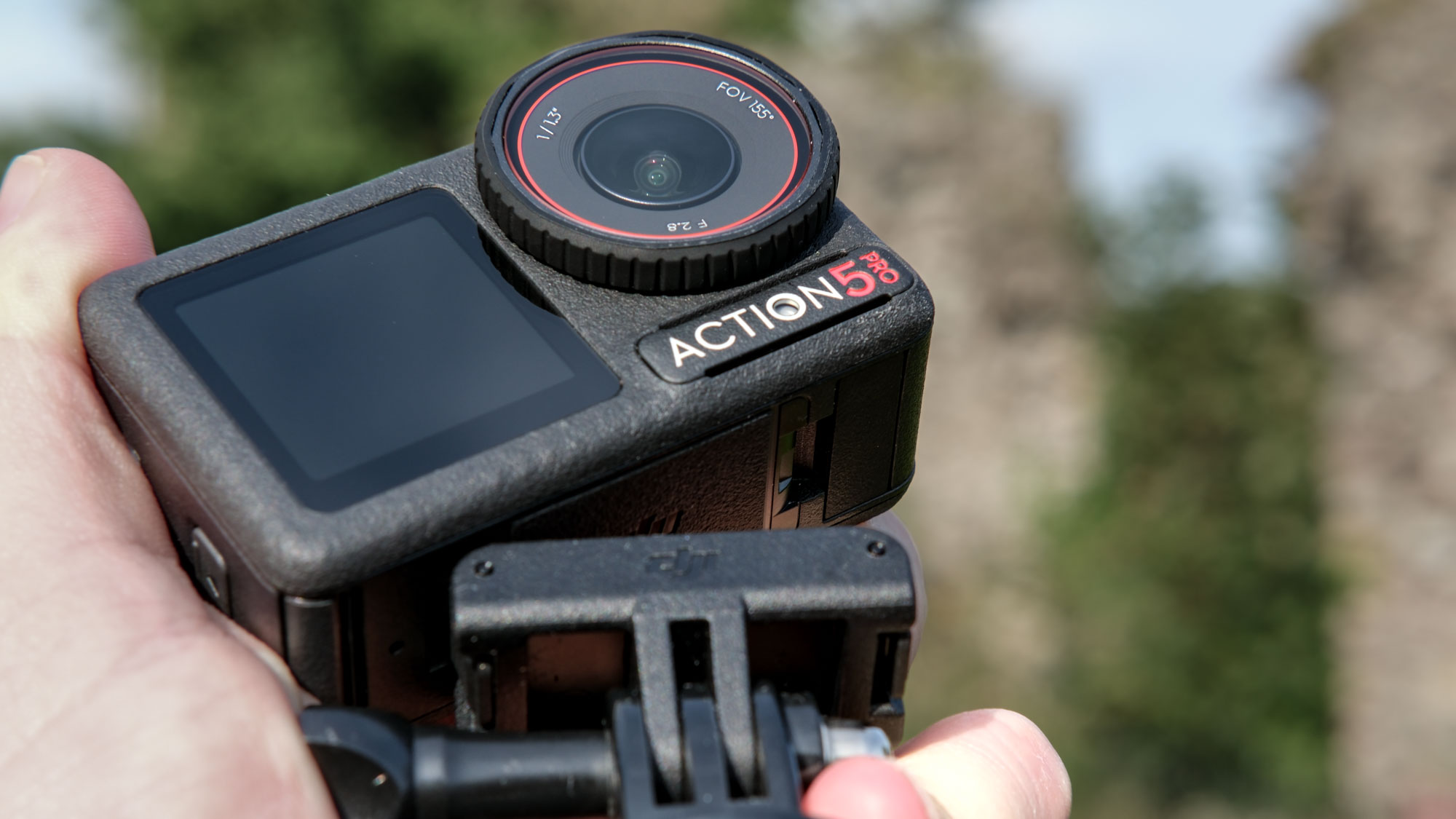
Waterproofing has been boosted to 65 feet from 59 feet in the OA4 — the latter was already best in class, making the OA5 Pro the new reigning champ for underwater footage. DJI has also added a software pressure gauge to give users an indication of safe operating depth — useful to snorkelers or others swimming without gauges.
DJI Osmo Action 5 Pro review: Controls & connectivity
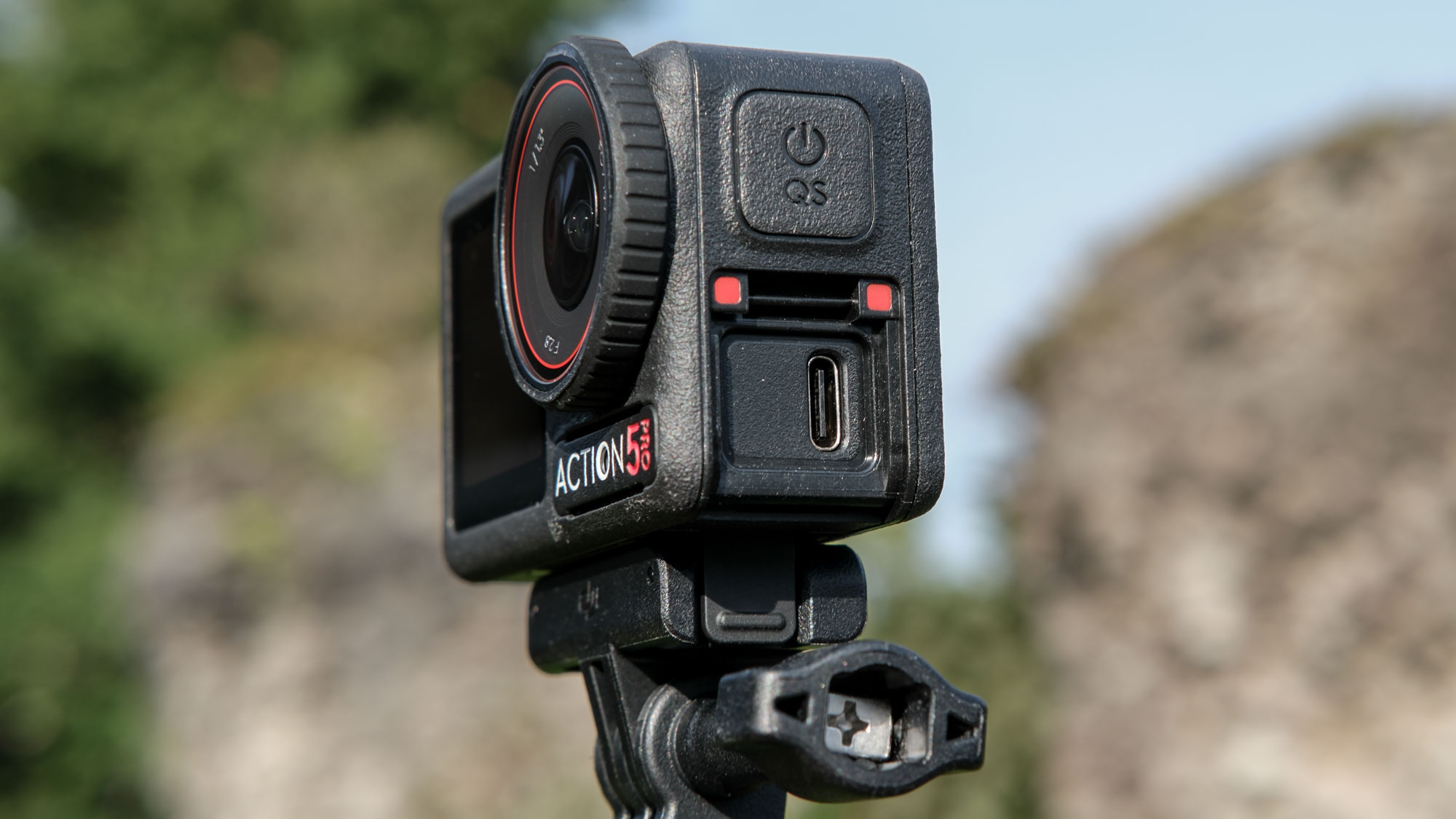
DJI’s menu system is simple and easy to navigate. Partly, this is down to the fact that there are fewer features on the OA5 Pro versus, in particular, Insta360 cameras, which are usually crammed full of different modes. There’s everything you need though, and an excellent array of manual exposure controls in video mode if you dig a little.
For connectivity, there’s a microSD slot, plus a single USB-C port for charging, accessory hookup and data transfer, although the latter can also be done wirelessly.
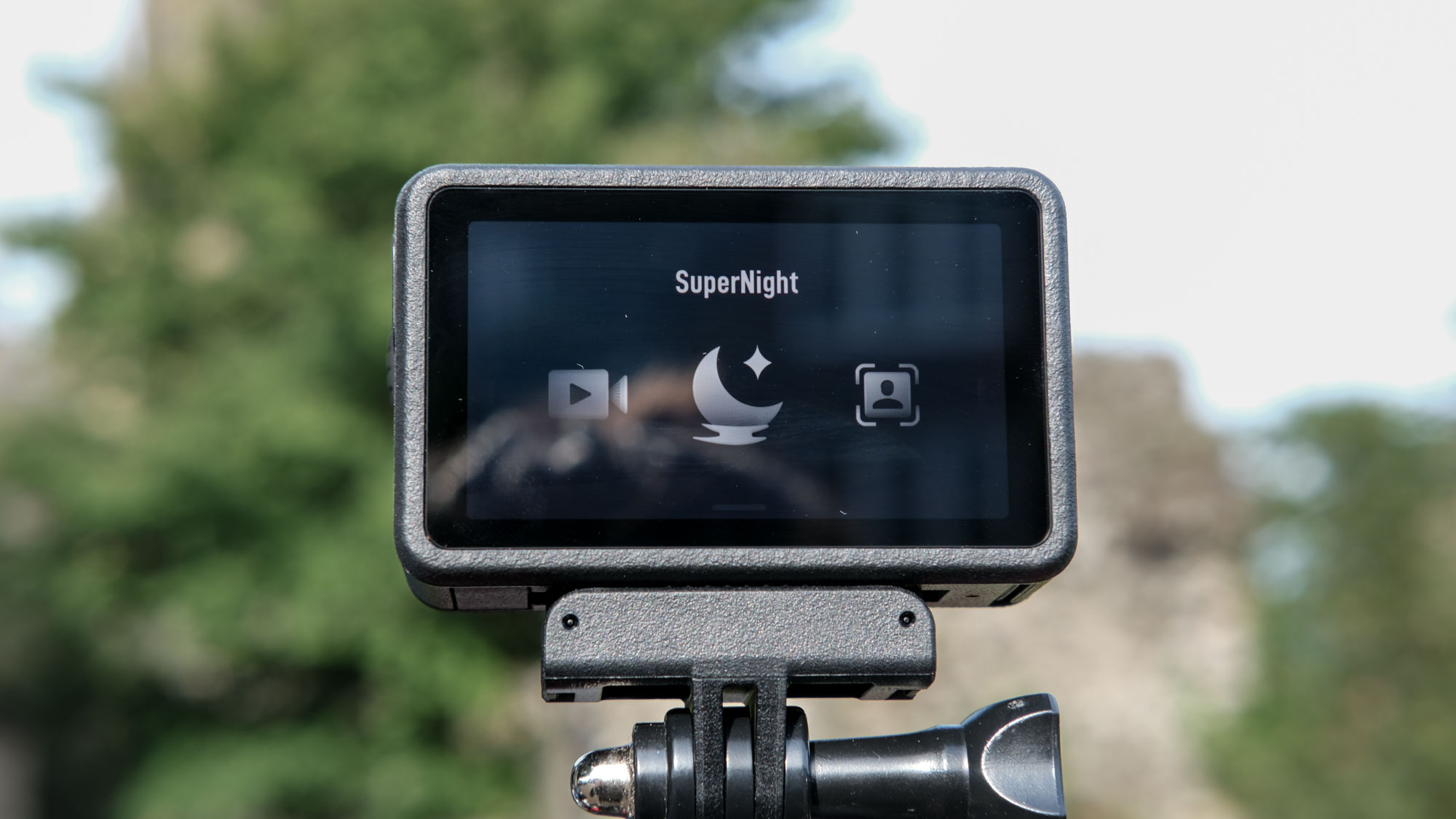
One of the camera’s finest features is its 47GB internal storage, which serves as a reserve fuel tank, giving you an hour or more of 4K/60p. I’m not ashamed to admit it: I’ve arrived at my shooting destination more than once only to realize I was without a card. With the OA5 Pro, you can record anyway!
DJI Osmo Action 5 Pro review: Stabilization
The OA5 Pro uses the same RockSteady 3.0 stabilization algorithm seen in the OA4, but it is more effective in the new camera. This is thanks to the updated sensor, which allows for faster shutter speeds to be used, resulting in better stabilization. It did a great job of stabilizing the footage above, despite the very bumpy road and slow speed. As you can see from the instrument dial, bottom right, the bike is jittering around like a bug on drugs, but the OA5 Pro smoothed everything out.
DJI Osmo Action 5 Pro review: Autofocus
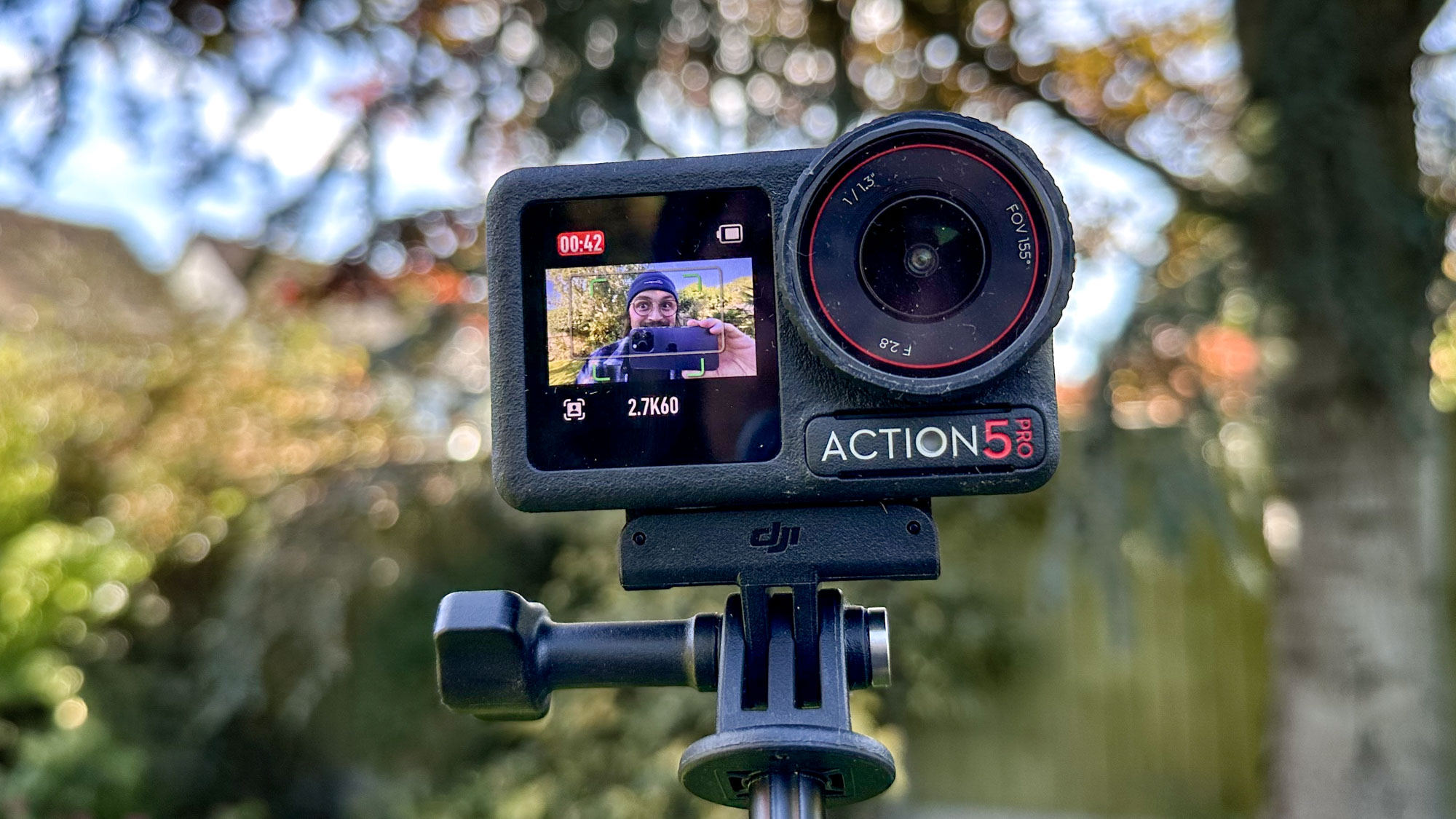
The Osmo Action 5 Pro is the first in the lineup to feature subject tracking autofocus, which we saw implemented first in the DJI Osmo Pocket 3, although it’s naturally less effective here given there’s no built-in gimbal to help physically track subjects. Subject detection will only work in well-lit conditions, I got t a warning telling me it was too dark to work even in moderately dim lighting. Output is also capped at 2.7K, which isn’t ideal.
Still, tracking performs well in the right conditions, detecting humans and even my dogs very easily and following them through the frame, although only if the camera or subject moves slowly. In vlogging scenarios, where tracking will be of most use, it works very well, tenaciously holding onto subjects even when things move in front of the lens.
That said, I rarely felt the need to use subject tracking given the OA5 Pro’s AF did a thoroughly respectable job in standard video mode (where 4K is available). As you can see in the selfie-style video test above, the camera had no issues keeping me in focus as I panned at arm’s length.
DJI Osmo Action 5 Pro review: Video performance
The OA5 Pro maxes out at 4K versus the 5.3K Hero13 Black and 8K Insta360 Ace Pro 2. DJI doesn’t seem interested in a spec-swinging contest , and indeed these +4K resolutions won’t be of any benefit to most casual creators (at least not while YouTube uploads top out at 4K). Likewise, as I’ve pointed out before, editing 30 minutes of 8K footage will make your high-end gaming rig look like a 2008 potato running Vista. All that is to say, if you’re a casual creator, don’t let the 4K max res put you off.
The thing is, the OA5 Pro literally has “Pro” in the name, alongside some powerful features genuinely useful to serious shooters (covered below). Hardcore video shooters are likely to be some of the only people who’ll see tangible benefits from 5.3K/8K by exporting downsampled higher quality 4K, so it’s frustrating to see the OA5 Pro still hamstrung here, potentially pushing this audience away. DJI confirmed to me that this choice was made given that 4K is the maximum resolution of most online streaming channels.
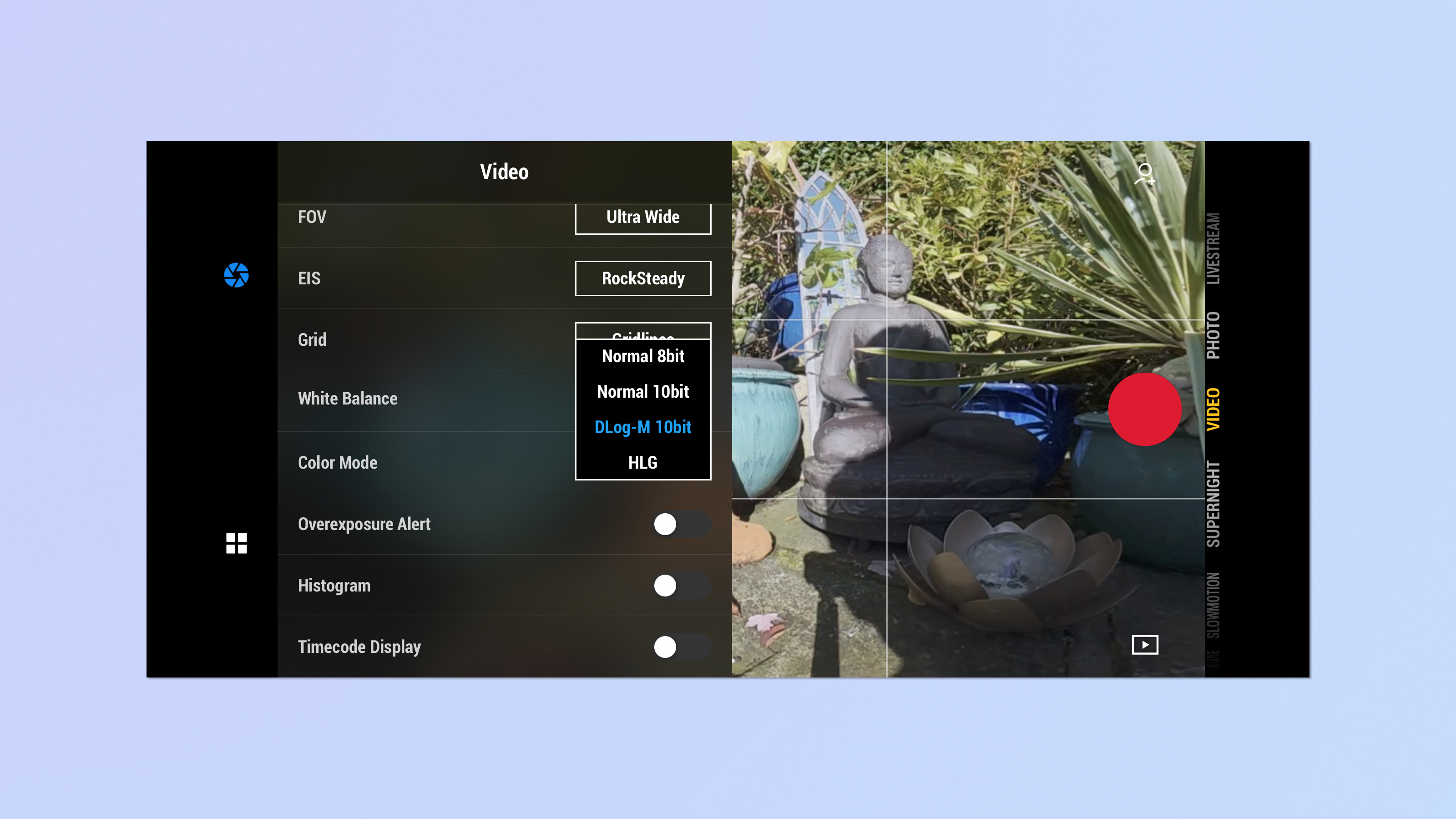
Still, as you can see in the clip above, shot in the camera’s standard color profile (in 8-bit color), 4K/60p footage looks gorgeous and sharp. The tones of the blue sky and green hedgerows are bold and vivid, and the warmth of the summer’s day has been perfectly captured. There are no creative color profiles, but befitting the ‘Pro’ moniker, you can select from 10-bit color in the standard profile for a wider gamut, plus two gamma correction profiles for higher dynamic range capture: HLG and D-Log, depending on your individual workflows and grading requirements. Again, these aren’t features for general consumers shooting clips, but will be very welcome to serious content creators with the tools, time and know-how to grade their own footage.
There are three fields of view (FoV): Standard (dewarp), Wide and Ultra Wide. I prefer Wide, which crops out much of Ultra Wide’s barrel distortion without stretching the image to dewarp it (removing said distortion), both of which affect image sharpness in the corners.
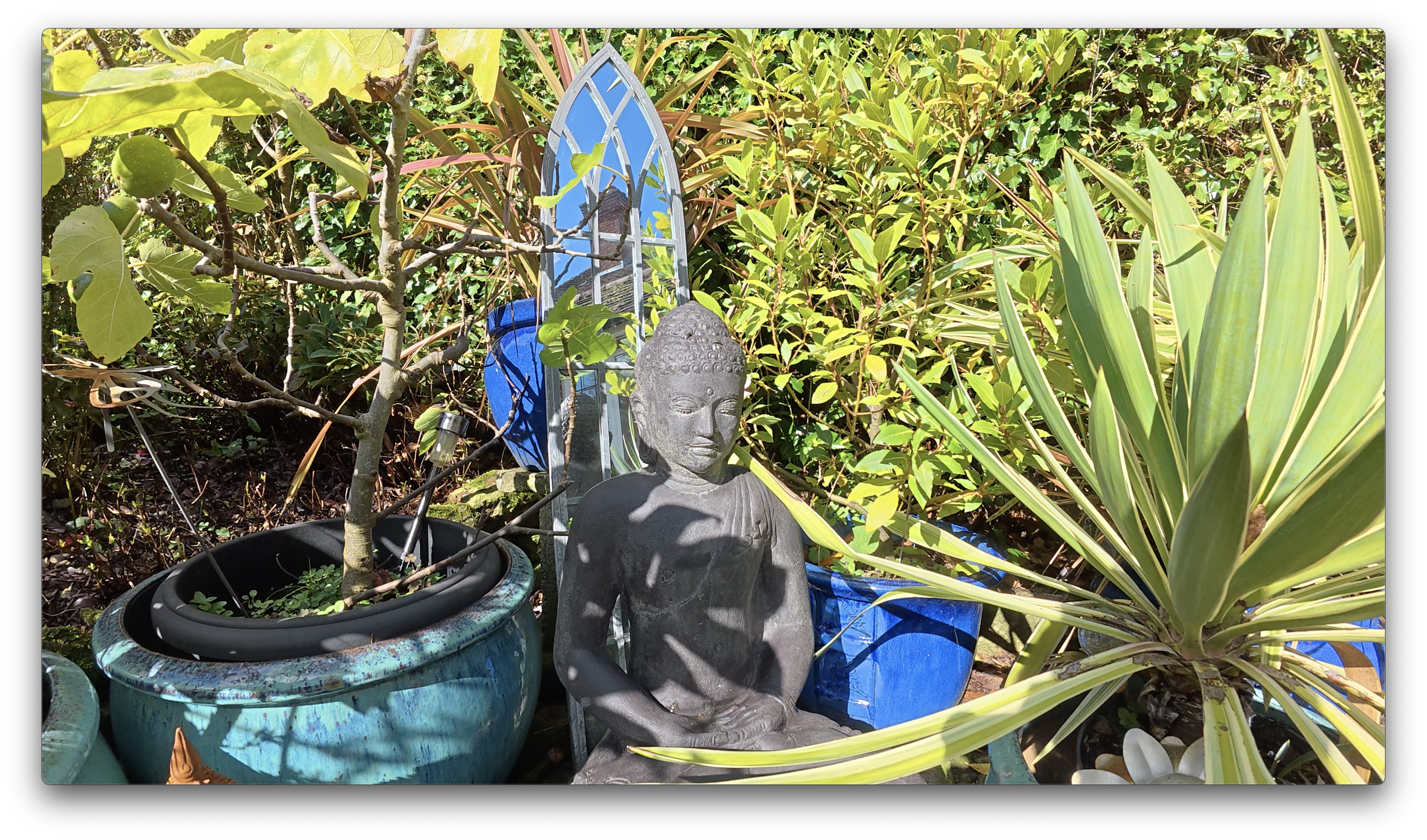
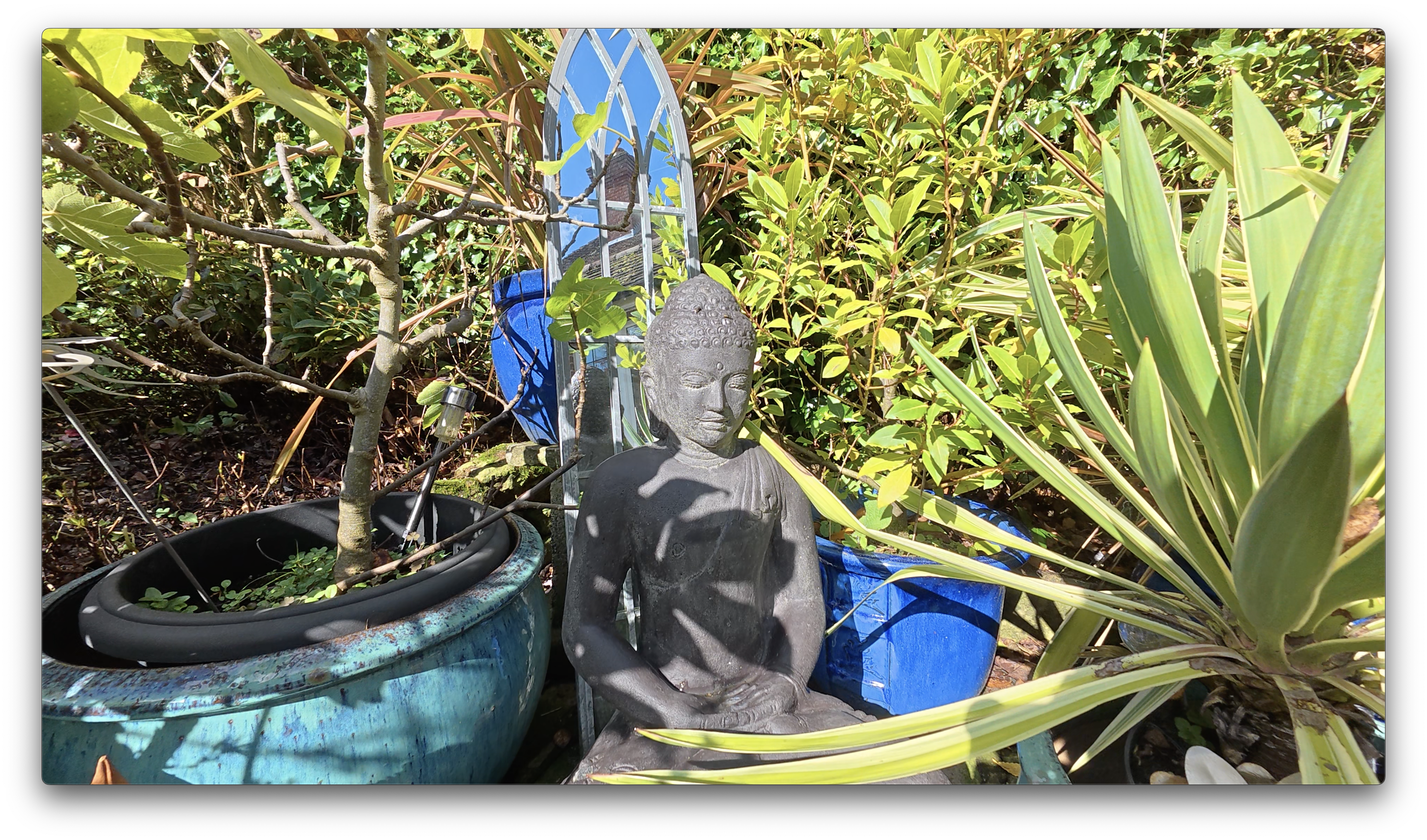

Low light performance is a mixed bag. In standard Video mode, footage is noisy with a noticeable loss in sharpness, but is as you’d expect from a 1/1.3” sensor. The “SuperNight” low light mode, which uses AI denoising to “yield cleaner and clearer footage”, did the opposite in testing, delivering noisier and fuzzier results. You can compare standard video and SuperNight video in the screengrabs below — each shot in the same conditions using the camera’s automatic metering.


Also available are timelapse and hyperlapse modes (the latter only via the Mimo app), plus loop recording for using the device as a dashcam and pre-recording to capture up to one minute before the record button is pressed. For slow motion footage, you can either shoot in standard video mode at 4K/120fps for converting to slow motion in post, or shoot slow mo straight out of camera at up to 240fps in FHD, or 120fps in 2.7K or 4K.
DJI Osmo Action 5 Pro review: Audio performance
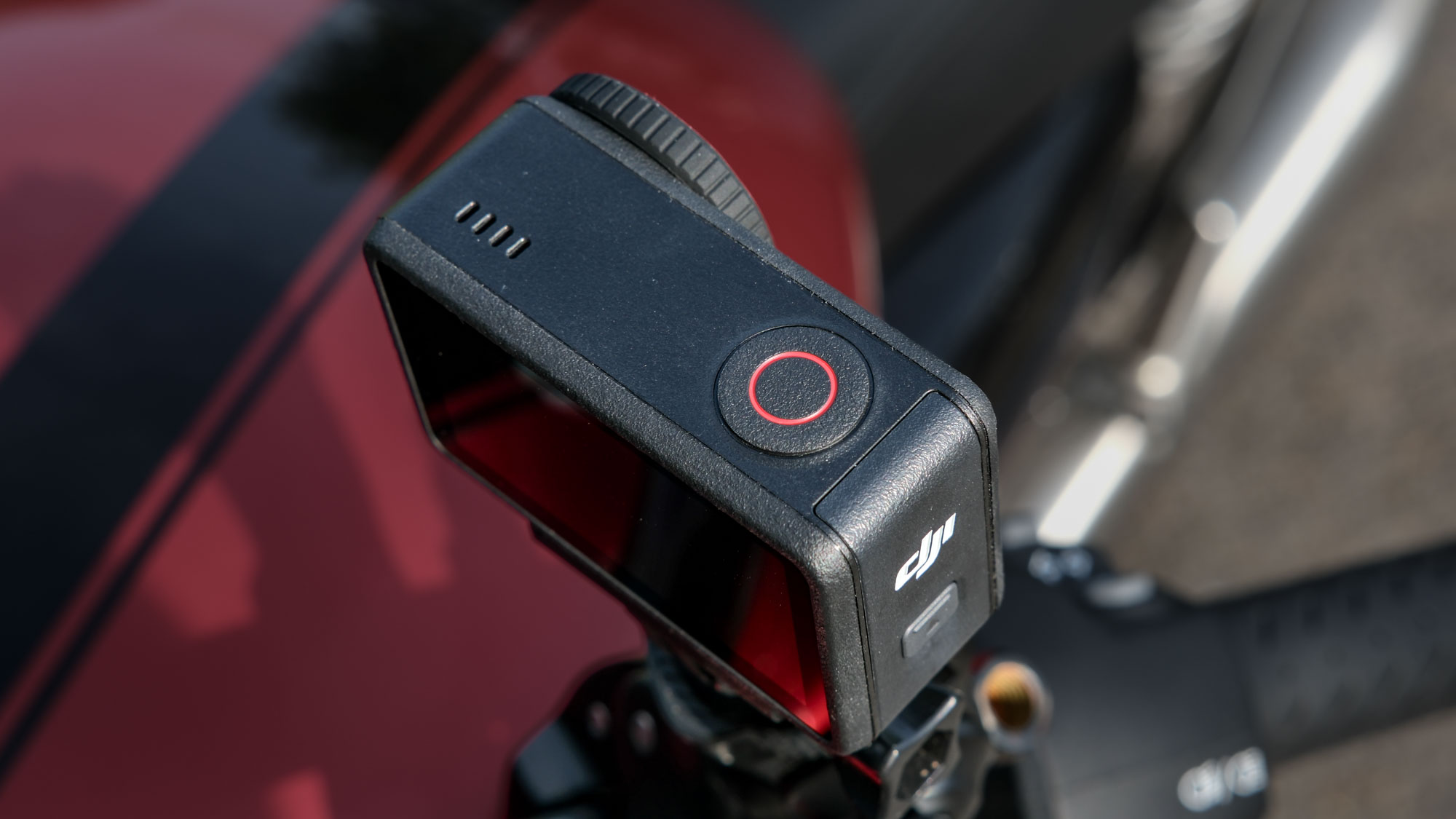
DJI has microphone pedigree, lending a natural advantage over its rivals. The OA5 Pro features three microphones delivering strong internally recorded audio. Listening to the motorcycle footage above, the camera has done a decent job reducing wind buffeting, while capturing the deep rumble of the motorcycle exhaust. This is the best internal mic I’ve heard from any action camera (save the OA4), and far cry from awful budget cameras like the SJCAM SJ20.
Obviously, though, if you want properly clean audio, you need a proper mic. As with the OA4, the OA5 Pro can wirelessly hook up to DJI microphones like the epic DJI Mic 2, which is supremely useful, removing the need to hook up via a 3.5mm cable. If you’re a creator who already has a DJI Mic, this should be a big selling point. Wired hookup is still possible using DJI’s audio adapter, though, if you’ve already invested in another mic like the Rode Wireless Pro.
DJI Osmo Action 5 Pro review: Smartphone app
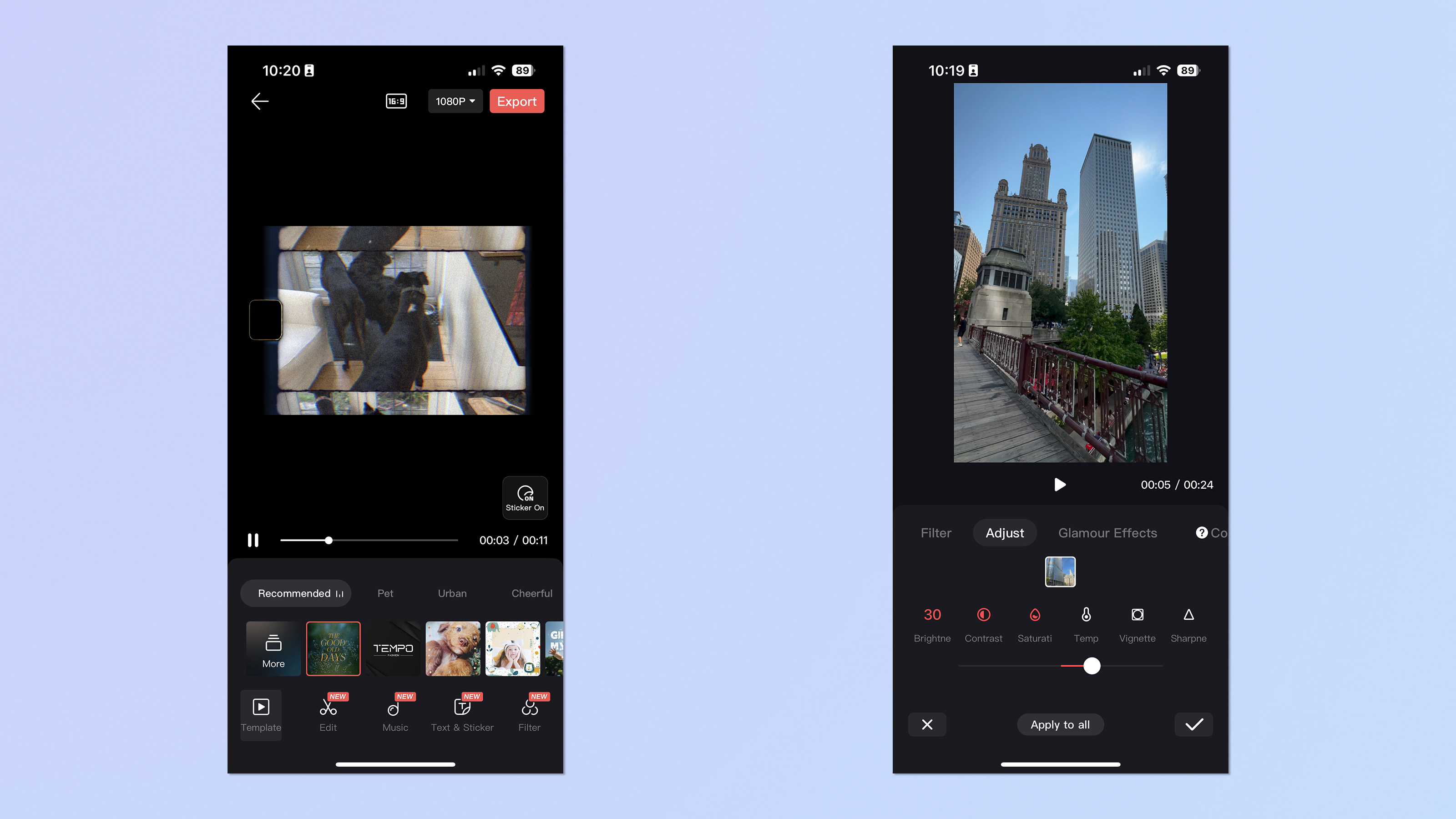
The DJI Osmo Action 5 Pro pairs with the DJI Mimo smartphone app — now much improved with better editing features, especially exposure controls (no longer must you edit in a separate third party app). Wireless hookup is easy, as is updating firmware, and in general it’s just a much slicker affair than it was at the OA4 launch. There are also some features to help the app appeal to casual users, like a ‘One Touch’ editing feature that automatically applies edits, rather gimmicky filters and frames — ostensibly an attempt at competing with the Insta360 app’s AI editing features.
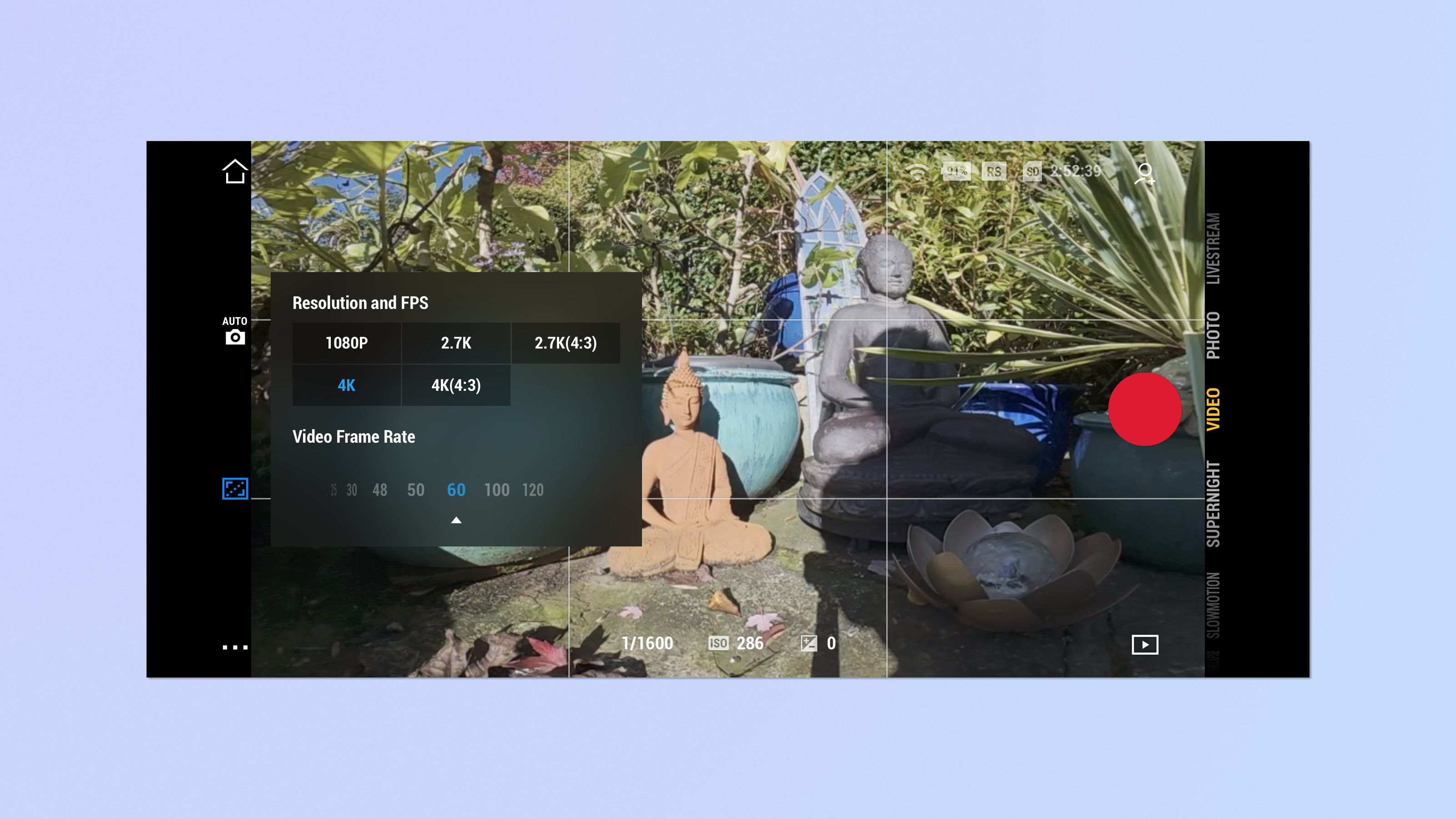
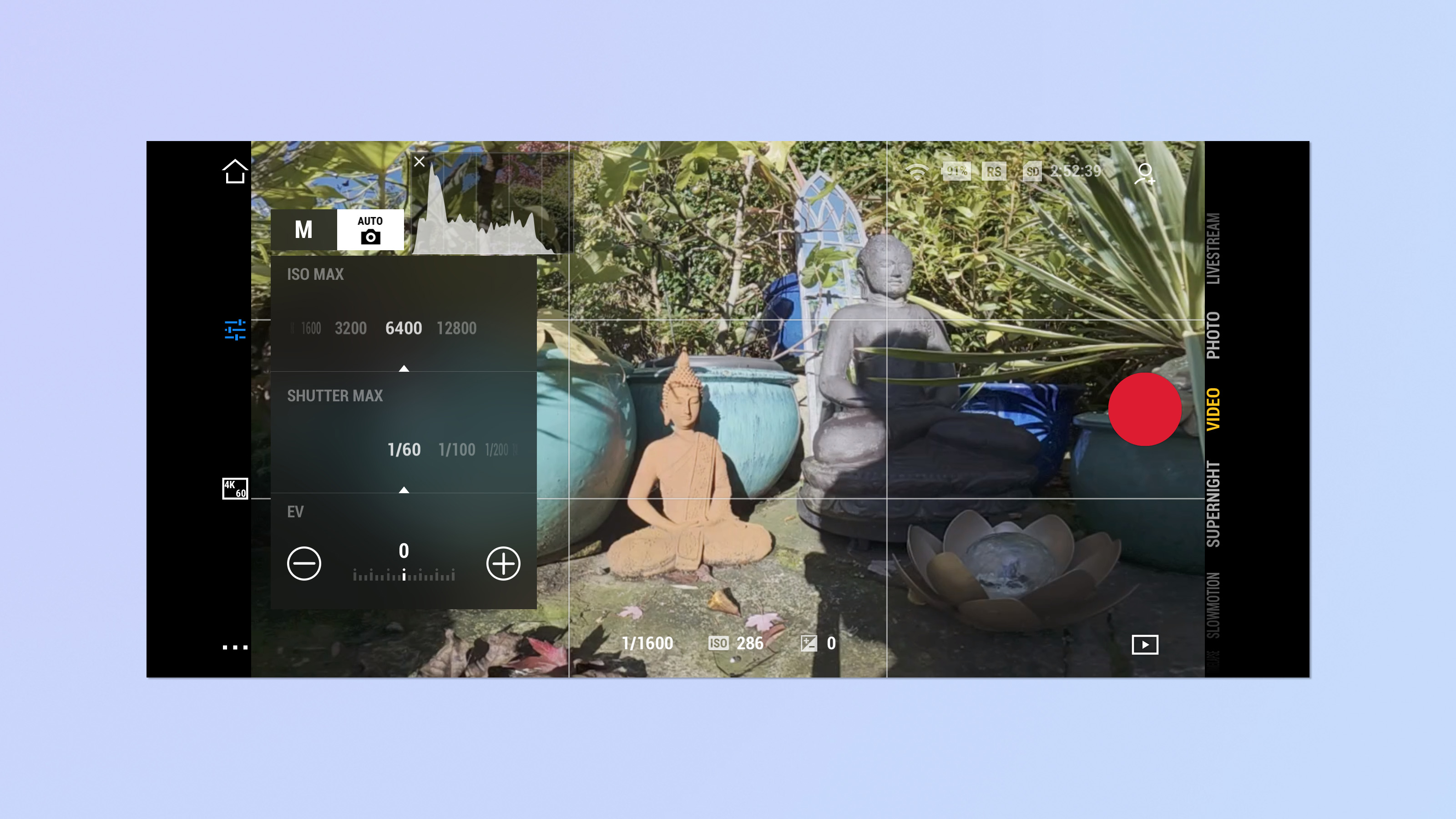
The app will also be beneficial to serious shooters, though, thanks to live view and full manual exposure controls, which are much easier to tweak via the app than the camera’s rear screen.
In general, the Mimo app still feels less slick than the Insta360 app, with fewer features for the casual user, but it’s great to see the improvement and it’s now much more usable than before.
DJI Osmo Action 5 Pro review: Battery & overheating
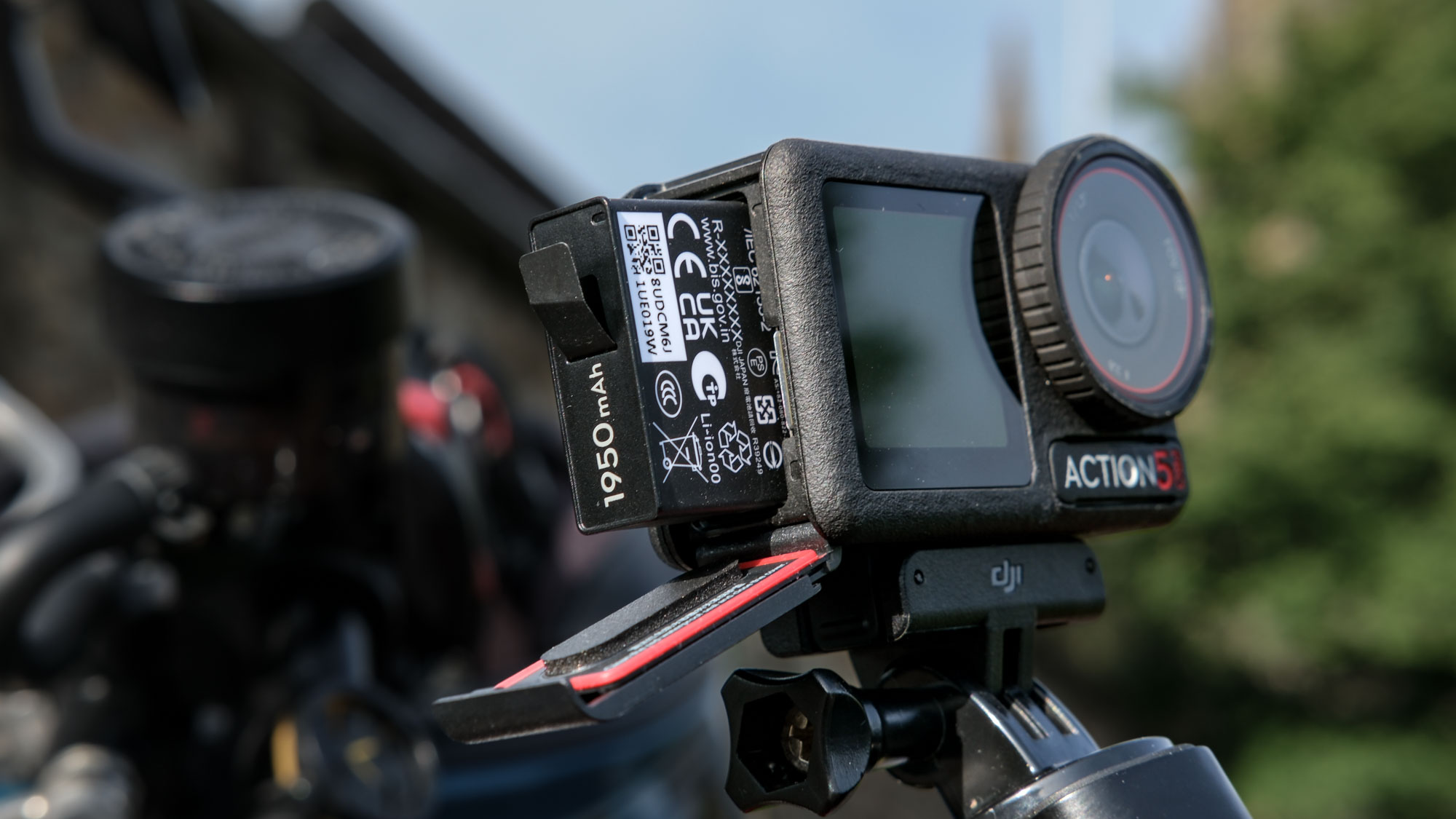
DJI has boosted the battery capacity for the OA5 Pro over its predecessor, from 1,770mAh to 1,950mAh, and the difference is stark. In our testing, the OA4 managed 80 minutes of footage, while the OA5 Pro managed 112 minutes at 4K/60p.
Our battery tests are run indoors, recording at 4K/60p, which naturally doubles as an overheating stress test. The OA5 Pro overheated after around 43 minutes, which is a decent performance. Naturally, when shooting outdoors in moderate temperatures and/or while moving, this won’t be an issue, and I experienced no overheating while recording continuously during motorcycle testing.
DJI Osmo Action 5 Pro review: How does it compare?
DJI Osmo Action 5 Pro review: Verdict
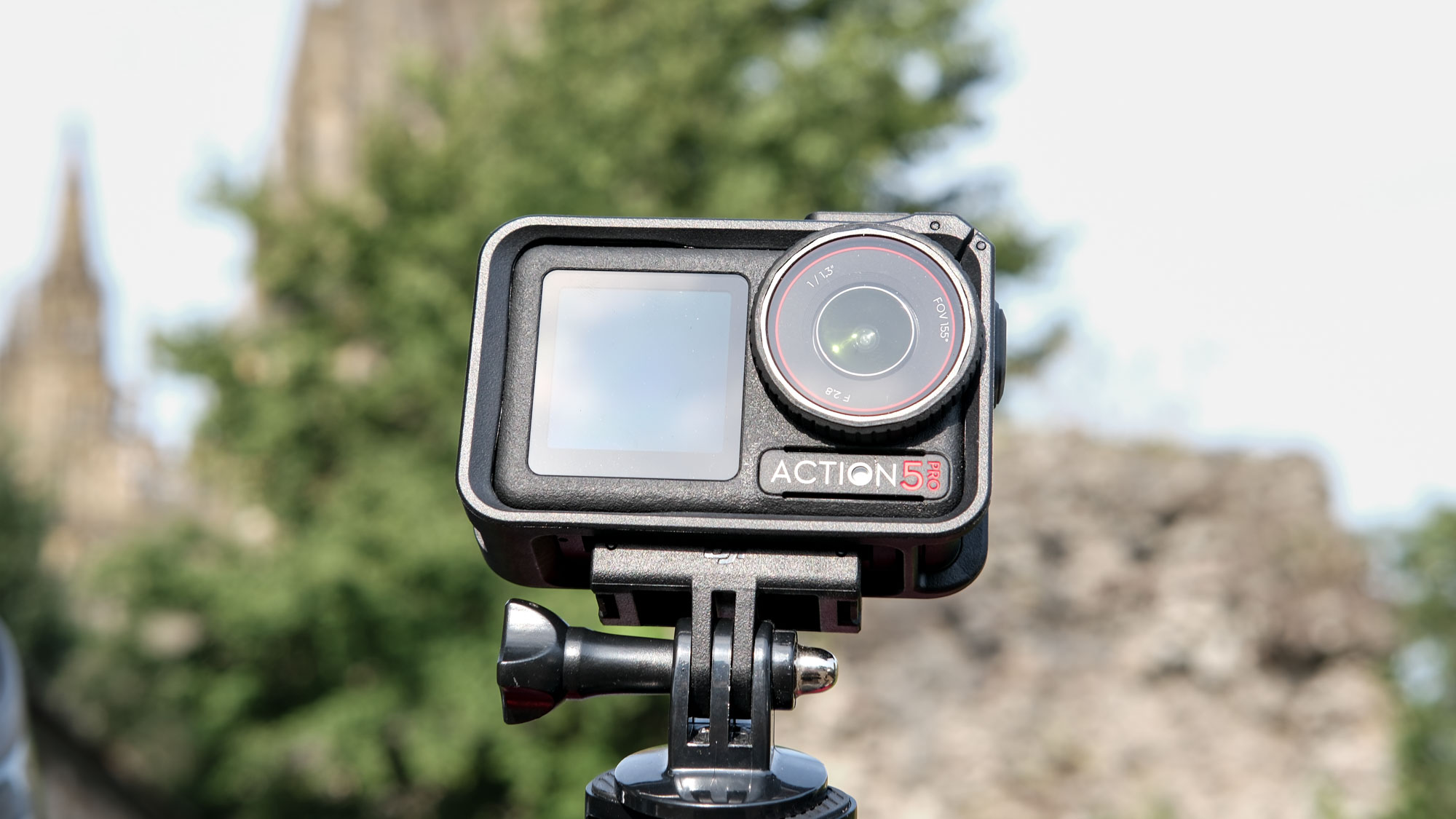
The DJI Osmo Action 5 Pro builds on an already excellent formula. The strengths of the Osmo Action 4 have been either maintained or amplified: even better waterproofing, pro recording features, strong internal audio and wireless mic compatibility. DJI has also fixed key issues with the OA5 Pro’s predecessor by boosting battery capacity and increasing app functionality, while adding extremely handy internal storage and undercutting the rival Hero13 Black by a whopping $50. The end result is that the OA5 Pro is a phenomenal product for the money, and unless you desperately need higher than 4K for downsampling, there really is very little reason not to buy this camera.







